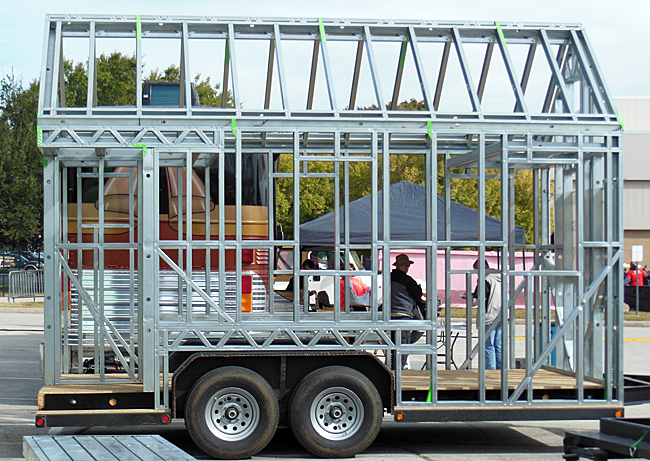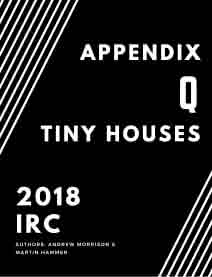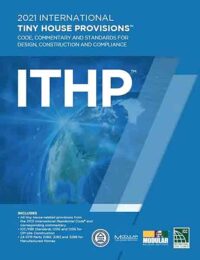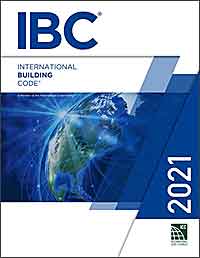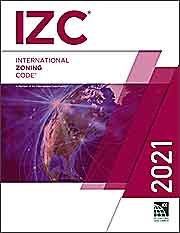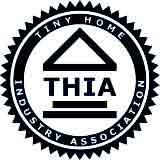Be Aware of Local Building Codes and Zoning BEFORE You Build
Interest in tiny houses is very high, thanks to TV shows like Tiny House Nation, and Tiny House, Big Living. However, people are finding that it’s quite difficult to live in one legally. As usual, the government regulations change at a snail’s pace. Many tiny home enthusiasts are finding that they need to be proactive, urging their county officials to change their current codes and/or adopt regulations from forward-thinking governments that have already adopted building code changes.
An excellent book about tiny house building codes and zoning
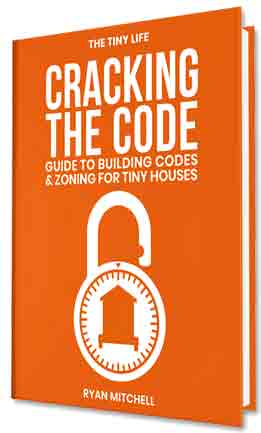
As is my custom, when someone has addressed an issue well, I point you to the resource rather than laboriously write my own piece. This book, “Cracking The Code” by Ryan Mitchell, does an excellent job of explaining building codes and local zoning laws.
- Learn to navigate all the red tape.
- Learn several pathways to building your home legally.
- Make sense of complex building codes.
- Learn about RVIA, ADU and more.
- Section Q – the brand new tiny house code.
- Avoid headaches in the permitting process.
You can have all this accurate information in your possession in moments because it is an e-book.
Ryan says, “The biggest part about navigating building codes and zoning is all about the words you use. Certain key phrases have vastly different meanings, and using the right one with an inspector can put you on the right path.
Many people opt to fly under the radar, this ebook looks at both going a legal route and other alternatives. Learn from those who’ve actually done it.”
Building Codes and Zoning for Tiny Homes
Below you will find a list of codes that apply to certain home buildings. Andrew Morrison, a pioneer of the “Tiny House Movement” wrote Appendix-Q (link below) and got it adapted into the International Residential Building Code at great personal cost. Here is a link to the book he wrote that has a chapter on codes and zoning: Idiot’s Guides: Tiny House Designing, Building, & Living.
Download Appendix-Q by clicking on this image.
Building codes regulate how to build your house. Zoning regulates what you can do with your property and infrastructure requirements (sewer, water, etc).
More publications you might be interested in
Essential Terms to Know
IRC: International Residential Code
A comprehensive, stand-alone residential code that creates minimum regulations for one- and two-family dwellings of three stories or less. It brings together all building, plumbing, mechanical, fuel gas, energy and electrical provisions for one- and two-family residences. This would cover “modular” homes set on foundations.
Appendix Q relaxes various requirements that apply to houses under 400 square feet in area or less.
Attention is specifically paid to features such as compact stairs, including stair handrails and headroom,
ladders, reduced ceiling heights in lofts; also guard, emergency escape, and rescue opening requirements
in lofts.
ANSI: American National Standard Institute
“The American National Standards Institute is a private non-profit organization that oversees the development of voluntary consensus standards for products, services, processes, systems, and personnel in the United States.”
ANSI A119.5 covers building codes for “Park” models.
HUD: Department of Housing and Urban Development
Building codes for “Manufactured” homes.
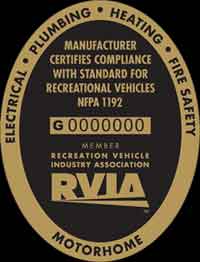
RVIA Standards written for RV’s.
RVIA: Recreational Vehicle Industry Association
Building regulations for RVs, campers, trailers, & motor homes.
Many RV parks require campers to have RVIA certification. Some tiny house builders boast of being RVIA certified.
If your tiny house is on wheels, it is considered an RV. Take the wheels off and lock it on to a foundation and all of a sudden, you are under a different set of building codes. Keep in mind that RVs are rated only for short-term occupancy, so it really doesn’t help you if you want to put a tiny home on your own property.
National Fire Protection Agency Code 1192
Here is a link to buy a copy of the NFPA 1192 codes. This code covers the unique characteristics of size and use of recreational vehicles that require a distinct set of fire and life safety criteria to guard against the hazards of fire and explosions.
The 2018 edition of NFPA 1192 Standard on Recreational Vehicles is a comprehensive code on egress requirements, fire detection requirements, carbon monoxide detection requirements, as well as the locations and types of fire extinguishers. NFPA 1192 also addresses the correct installation of plumbing, fuel-burning, electrical, and other safety-related systems.
Added requirements in the 2018 edition:
- New requirements on lofts address stairway configuration, handrails, and guardrails.
- New requirements are added for retaining in place potable water and waste holding tanks.
- New requirements cover for axle, tire, and wheel assembly for towable recreational vehicles.
The government is poised to make changes to address tiny homes
Things are changing rapidly as government agencies catch up to the fact that tiny houses aren’t a fad, and may well be the answer to the current housing crisis. Here is a link to a new ruling by HUD for RVs and manufactured homes, including tiny homes.
Here is an article by InspectAPedia that “assists mobile home, trailer, or double-wide owners, and inspectors of those homes who need to find the applicable codes and standards for manufactured homes, multi-wides, trailers or mobile homes.”
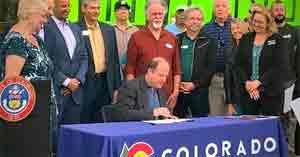
Colorado Becomes a “Tiny Homes Welcome” State
The Colorado Tiny Home Bill, HB22-1242 encourages state municipalities to adopt the Bill as well as the updated IRC codes. The State of Colorado recognizes that movable tiny homes can be a major player in easing the extreme attainable housing crisis that affects not only Colorado but the entire nation.
Thanks to the efforts of the THIA folks and tiny house builders, this has become a landmark opportunity for tiny home builders. Read more here. The HB22-1242 Bill recognizes movable tiny homes AND sets in place a structure to legalize their construction & living tiny in Colorado legally.
Tiny Life Consulting is a member of the Tiny Home Industry Association.
Jurisdictions That Currently Accept Moveable Tiny Homes
Thanks to the tireless work of those leading the Tiny Home Industry Association, many areas of the country are now amenable to tiny homes. Here is a list of those areas.
Watch out for “Shiny Sticker” scammers
Be aware that there are non-accredited companies willing to sell you a “shiny sticker” claiming you are certified. The RVIA sticker shown here can only be rightfully obtained from a certified manufacturer for their vehicles. Jump to my blog post for detailed information on Tiny House Certification Companies.
Because your tiny home can move around:
Building codes vary from one jurisdiction to another. If you move your THOW (tiny house on wheels) to another location, the local inspector may not accept the certification given from another area. When you build, keep a detailed video and photo log of the building process. Show all plumbing, electrical, and framing before you close in the walls. Keep a record of all of the contractors and companies you used. This will help convince an inspector that your home is built to code.
Here is a great two-part YouTube series about adapting your counties codes to allow for tiny homes:
Here is a good organization to keep abreast of news as cities, towns, and municipalities adapt their building codes to accommodate tiny homes: American Tiny House Association
For more information about codes and zoning visit these pages of Tiny Life Consulting
2021 International Tiny House Provisions
How to be Proactive with Building Codes and Zoning Laws
Building and Living Legally In Tiny Homes
Tiny House Certification Companies
Disclaimer: The Site cannot and does not contain legal advice. The legal information is provided for general informational and educational purposes only, and is not a substitute for legal advice. Before taking any actions based upon such information we encourage you to consult with the appropriate legal professionals or licensed attorneys. We do not provide any kind of legal advice. The use or reliance of any information contained on
this site [or our mobile application] is solely at your own risk. Here is more legal stuff.


